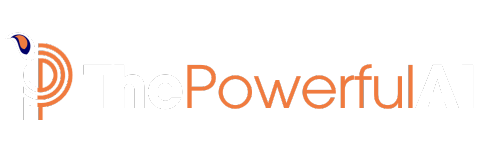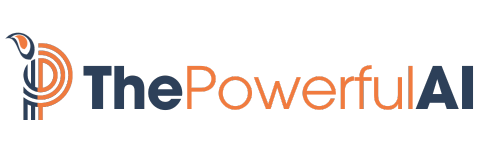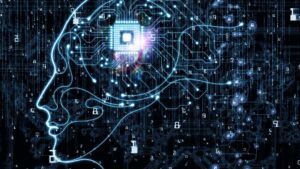Artificial Intelligence in Medicine is the use of machine learning models to search medical data and uncover insights to improve health outcomes. Healthcare leaders and patients alike recognize the potential of AI in various areas, such as forecasting emergency department volumes, predicting effective treatments, and supporting primary care physicians by analyzing patient discussions and entering information in electronic health records.
AI is also widely used in diagnosing patients, drug development, and improving processes throughout the healthcare continuum. As AI continues to advance, it has the potential to bring transformative changes to healthcare and disrupt the field of medicine. By leveraging AI technology, medical professionals can make more accurate diagnoses, provide personalized treatments, and enhance overall patient care.
Introduction To Artificial Intelligence In Medicine
Artificial intelligence is revolutionizing the field of medicine, with healthcare leaders utilizing AI for tasks such as predicting treatment effectiveness and forecasting ER volumes. Patients also recognize the potential benefits of AI in healthcare.
What Is Artificial Intelligence In Medicine?
Artificial Intelligence (AI) in medicine refers to the application of advanced technologies and algorithms that mimic human intelligence to analyze complex medical data, support clinical decision-making, and improve patient outcomes. By using machine learning, natural language processing, computer vision, and other AI techniques, healthcare professionals can harness the power of data to revolutionize the way medical diagnoses are made and treatments are delivered.
Benefits And Potential Of Ai In Medicine
AI in medicine offers numerous benefits and has the potential to transform healthcare in various ways. Some key advantages are:
- Improved accuracy: AI algorithms can analyze vast amounts of medical data with speed and precision, reducing the chances of errors in diagnosis and treatment planning.
- Enhanced efficiency: AI can automate time-consuming tasks, such as analyzing medical images or transcribing clinical notes, freeing up healthcare professionals to focus on patient care.
- Personalized care: AI can support personalized treatment plans by analyzing individual patient data and tailoring interventions based on specific needs and risk factors.
- Early detection and prevention: AI algorithms can identify patterns and indicators of diseases at an early stage, allowing for timely interventions and preventive measures.
- Research advancements: AI can accelerate medical research by analyzing large datasets, identifying patterns, and discovering potential new therapies or treatments.
Current And Future Applications Of Ai In Medicine
The applications of AI in medicine are wide-ranging and continue to expand. Some of the current and future applications include:
| Medical imaging analysis | AI algorithms can analyze medical images, such as X-rays, MRIs, and CT scans, to assist in the detection and diagnosis of diseases. |
| Drug discovery | AI can be used to analyze vast amounts of biological and chemical data to identify potential drug candidates and accelerate the drug discovery process. |
| Electronic health records (EHR) | AI can help in extracting and organizing relevant information from EHRs, improving documentation accuracy and facilitating data-driven decision-making. |
| Virtual assistants | AI-powered virtual assistants can assist healthcare professionals by providing relevant patient information, answering queries, and aiding in decision-making. |
| Robot-assisted surgeries | AI-controlled robotic systems can assist surgeons in performing complex surgeries with precision, reducing the risk of errors and improving patient outcomes. |
| Predictive analytics | AI algorithms can analyze patient data and predict outcomes, such as disease progression, treatment response, and readmission rates, assisting in proactive care management. |
These are just a few examples of how AI is already making its mark in the field of medicine. With ongoing research and technological advancements, the potential applications of AI in healthcare are boundless, promising a future where medical decisions are more accurate, personalized, and efficient.

Credit: www.medicaldevice-network.com
Impact Of Artificial Intelligence On Medical Diagnosis
Artificial Intelligence (AI) has revolutionized various industries, including healthcare. In the field of medical diagnosis, AI has made significant advancements, improving both accuracy and efficiency. AI-enabled diagnostic tools are transforming the way medical conditions are diagnosed, leading to better patient outcomes. However, there are also challenges and limitations associated with implementing AI in medical diagnosis.
Improved Accuracy And Efficiency In Diagnosis
AI in medical diagnosis has greatly enhanced the accuracy and efficiency of diagnostic processes. By analyzing vast amounts of medical data, AI algorithms can identify subtle patterns and trends that human experts might miss. This leads to more accurate and timely diagnosis, enabling doctors to provide appropriate treatment plans quickly. AI’s ability to process and interpret complex medical information efficiently helps reduce diagnostic errors and ensures patients receive the correct diagnosis.
Ai-enabled Diagnostic Tools
AI technologies have given rise to a new generation of diagnostic tools that aid healthcare professionals in making accurate diagnoses. These tools leverage machine learning algorithms and deep learning models to analyze patient data, such as electronic health records (EHRs), medical images, and clinical notes. AI-enabled diagnostic tools can assist in detecting abnormalities, predicting disease progression, and even offering personalized treatment recommendations. These advancements empower healthcare providers with valuable insights, enabling them to make more informed decisions about patient care.
Challenges And Limitations Of Ai In Medical Diagnosis
While AI has shown immense potential in medical diagnosis, there are challenges and limitations that need to be addressed to fully harness its capabilities. One major challenge is ensuring the reliability and accuracy of AI algorithms. The trustworthiness of AI outputs must be established through rigorous evaluation and validation processes. Additionally, the adoption of AI in medical settings requires overcoming barriers like data privacy concerns, data quality issues, and regulatory compliance. It is crucial to strike a balance between human expertise and AI capabilities to avoid over-reliance on AI and maintain patient safety and trust.
Moreover, the lack of interpretability in AI algorithms poses a limitation. The ability to explain how AI arrives at its diagnostic decisions is essential for gaining user acceptance and building trust among healthcare professionals. Further research is needed to develop explainable AI models that provide transparency and insights into the decision-making process.
Ethical And Regulatory Considerations In Ai-driven Healthcare
As artificial intelligence (AI) continues to revolutionize the field of medicine, it is crucial to address the ethical and regulatory considerations that come along with its implementation. AI has the potential to greatly improve patient care and outcomes, but it also raises important questions about patient privacy, data security, transparency in algorithmic decision-making, and the need for legal and regulatory frameworks to ensure responsible and safe use of AI in healthcare. In this article, we will delve into these considerations and explore their implications for the future of AI-driven medicine.
Patient Privacy And Data Security
One of the primary ethical concerns surrounding AI in healthcare is the protection of patient privacy and data security. With the collection and analysis of vast amounts of patient data, there is an increased risk of unauthorized access, data breaches, and misuse of sensitive information. To address these concerns, healthcare organizations must adhere to strict privacy regulations, implement robust data encryption, and establish secure storage and transmission protocols. Additionally, patients should be fully informed about the data that will be collected, how it will be used, and their rights to opt-out or have their data deleted. By prioritizing patient privacy and data security, we can build trust and ensure the responsible use of AI in healthcare.
Transparency And Explainability Of Ai Algorithms
Another important consideration in AI-driven healthcare is the transparency and explainability of AI algorithms. Healthcare providers and patients need to have a clear understanding of how AI systems make decisions in order to trust their recommendations and outcomes. It is crucial to develop methods that enable the transparency of AI algorithms, allowing healthcare professionals to interpret the results and understand the reasoning behind the algorithms’ decisions. Additionally, AI algorithms should be continuously evaluated and updated to ensure they are accurate, fair, and unbiased. By promoting transparency and explainability, we can mitigate the potential risks associated with black-box AI algorithms and enhance trust in AI-driven healthcare.
Legal And Regulatory Frameworks For Ai In Medicine
To ensure the responsible and ethical deployment of AI in medicine, it is essential to establish legal and regulatory frameworks that govern its use. These frameworks should address issues such as data protection, algorithmic accountability, liability for AI errors, and the impact of AI on healthcare professionals’ roles and responsibilities. Governments and regulatory bodies must work collaboratively with healthcare organizations and experts to develop comprehensive guidelines and standards that balance innovation and patient safety. By implementing these frameworks, we can ensure that AI-driven healthcare operates within ethical boundaries, with clear rules and regulations that protect both patients and healthcare providers.
Frequently Asked Questions On Artificial Intelligence In Medicine
How Is Ai Being Used In Medicine?
AI is used in medicine for forecasting emergency department volumes to predicting effective treatments. It is also used by primary care physicians to analyze patient discussions and enter information into EHR systems. AI helps improve health outcomes by uncovering insights from medical data.
How Is Ai Used In Healthcare 2023?
AI in healthcare 2023 is used for forecasting emergency department volumes, predicting effective treatments, and improving health outcomes. Patients and healthcare leaders recognize its potential in transforming the field and are on board with its implementation. AI enables new discoveries and improved processes across the healthcare continuum, with considerations for ethics, governance, and regulations.
Its use in medical sciences includes diagnosing patients and analyzing discussions between doctors and patients. AI has the potential to disrupt the healthcare industry and bring significant advancements in medicine.
What Is The Special Issue Ai In Medicine?
The special issue AI in medicine focuses on publishing research on artificial intelligence applications in healthcare. It includes topics like disease prevention, early diagnosis, diagnosis, and treatment. AI is being used in medicine to forecast emergency department volumes, predict effective treatments, and improve patient care.
How Ai Will Disrupt Healthcare?
AI will disrupt healthcare by helping healthcare leaders forecast emergency department volumes, predict effective treatments, and improve patient care. With AI, primary care physicians can analyze patient discussions, enter required information directly into EHR systems, and make more accurate diagnoses.
AI in medicine improves health outcomes and transforms healthcare.
Conclusion
With the rapid advancements in artificial intelligence (AI), the field of medicine is undergoing a transformation like never before. Healthcare leaders are leveraging AI to forecast emergency department volumes, predict effective treatments, and improve overall patient care. The potential of AI in medicine is not only recognized by healthcare execs, but also by patients.
From diagnosing patients to end-to-end drug development, AI is revolutionizing medical sciences. With its ability to uncover insights from medical data, AI is poised to significantly improve health outcomes. As we embrace the future, the role of AI in medicine will continue to evolve and revolutionize the healthcare industry.





